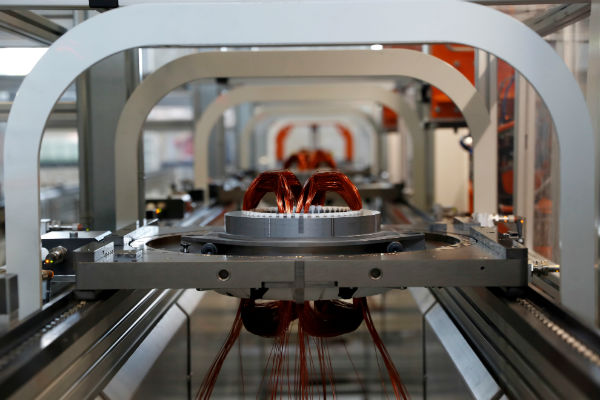Labour shutdown hits production in Germany

BUDAPEST (Reuters) — Support for a strike that last week shut Audi’s massive Hungarian plant increased over the weekend, the union said on Monday, and the disruption in supplies has led to a halt in production at the carmaker’s home factory in Germany.
Tibor Szimacsek, a spokesman for the AHFSZ union that called out all 9,000 of its members from the Gyor plant on Thursday in a dispute over pay, said the union’s ranks swelled by another 300 workers at the weekend.
He added several rounds of negotiations had failed to bring the two sides closer to an agreement at the plant, which employs more than 13,000 people and is one of Audi’s largest.
On Monday, there was a gathering of about 4,500 workers at the plant, Szimacsek said, to give support to an unusually powerful show of labour strength in Hungary, where large strikes are uncommon. Audi declined to comment on the turnout.
The strike has led to a shutdown at Audi’s home plant in Ingolstadt, Germany, due to a lack of vital components from Hungary such as engines, a company spokesman said. Audi is a member of the Volkswagen group.
Audi spokeswoman Judit Mithay-Marko told Reuters the company continued to strive for an agreement, and had submitted its seventh wage proposal at the weekend.
Unions negotiators rejected that package on the spot on Saturday, Szimacsek said.
Audi has offered a total 20 per cent wage increase for this year and next, but the union wants an immediate 18 per cent increase, and more down the line to give its workers greater parity with Audi’s Slovak employees, who the union says make 28 per cent more, or its Polish staff, who earn 39 per cent more.
"We asked Audi in Ingolstadt to send a high-level executive for the talks," Szimacsek said, adding there would be a new round of talks on Monday afternoon. Audi declined to comment on that.
The Hungarian economy has grown by more than four per cent in the last two years, and has become increasingly reliant on car manufacturers and their subcontractors.
Audi’s Hungarian business contributes about 1.4 per cent to the country’s gross domestic product, according to one local economist. Its $8.3 billion net revenue in 2017 was about 12 per cent of Audi’s global intake, company data shows.
Daimler, Suzuki and General Motors also have units in Hungary, and BMW committed to building a large new factory last year.




